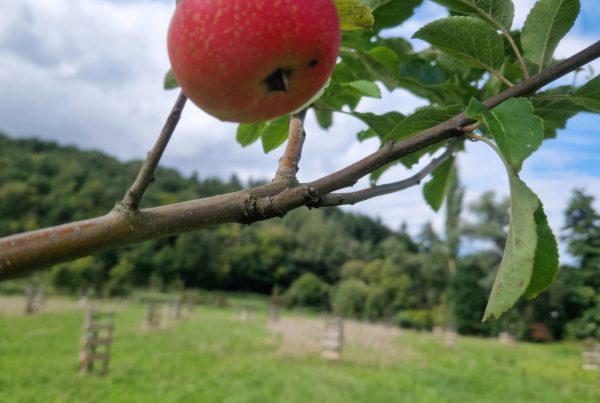Put simply, investing is about making money. The goal is to generate the greatest possible return with the least possible risk. So much for textbook economics!
Many market participants also consider the impact of their investments, since we often have a choice between investments with comparable risk/reward profiles that either have positive or negative effect. But could investments also help to bring peace?
These days, the answer seems obvious. After all, even the most well-intentioned investments could not prevent the wars in Ukraine and the Caucasus nor the latest conflict in the Middle East. However, this would be the wrong answer.
Criticism of aid and development funds
Following the horrific Hamas massacres in Gaza, discussions about aid and development aid have flared up. Opponents are forming on one side, continuing to demand an immediate halt to payments to prevent funds from flowing to the terrorist organization. The other faction is arguing that the humanitarian catastrophe in the Gaza Strip is expected to reach unprecedented proportions.
Germany is one of the largest donors due to its economic strength. Therefore, the coming weeks are expected to see significantly more intense debate about the allocation of aid and development funds. Unfortunately, populists will take advantage of the fact that there is no simple answer to this complex issue and will try to win more votes with their own catchy demands.
But not only the recent war in the Gaza Strip, but also the challenges on the African continent are calling into question the practice of granting aid. However, there will be no simple, universally applicable solution, as development aid is provided in many forms: it is not inherently the ‘watering can’ that populists, in particular, see it as, criticizing that only a small portion reaches those in need. Many development projects are very concrete and focused.
The Impact of Development Aid: Between Immediate Aid and Dependencies
Far more important than the question of whether and how much money reaches the wrong recipients, however, is the question of the actual impact of development aid. There is no question that aid supplies and funds can mitigate the immediate impact of disasters and undesirable developments. They are indispensable for helping people in greatest need.
But it seems unsuitable for providing a long-term solution. Even more problematic is that, similar to painkillers, the long-term distribution of aid supplies and funds can lead to negative side effects and even dependence. Side effects that are currently evident in the Gaza Strip, where approximately 2 million people were directly dependent on international aid even before the current escalation.
Investments as a Driver for Sustainable Peace and Development
Investments, on the other hand, are based on reciprocity. Investors trust that their money will be repaid, including a return. Recipients become actors and, in turn, must use the funds to generate profits and become independent of further injections. Investments are a catalyst.
Economic activities lead to a competitive ecosystem. And, as in nature, entrepreneurial ecosystems also develop their own resilience.
The essential ‘peacemaking’ aspect, however, takes place in people’s minds. Those who want to benefit from the security of a business will actively participate in it. This participation leads to identification: a ‘we-feeling’ that can transcend one’s own family and ethnic or ideological boundaries.
It also fosters the instinct for self-preservation: No one will permanently pursue an ideology that threatens their own (economic) substance.
In fact, the prospect of economic security and participation can prevent people from becoming radicalized. The major conflicts of the past were based (almost exclusively) on economically precarious situations. These circumstances enabled warmongers to influence people with the promise and prospect of a better future.
By using our investments as a catalyst for entrepreneurial initiatives, we enable people to experience real and tangible improvements instead of empty promises.
Participation through Microfinance
Well-implemented microfinance primarily uses microloans in low-income areas to enable people to participate in entrepreneurial ventures. Numerous long-term studies on microfinance conclude that, in addition to entrepreneurial ventures and a certain increase in prosperity, it also has positive effects on healthcare, education, and the fight against corruption. Furthermore, microfinance can provide a significantly longer-term perspective on the use of natural resources.
Does microfinance prevent wars? In the medium term, yes.
And ‘medium term’ in this context encompasses one to two generations. If we continuously facilitate small initial sparks, we can offer people security and prospects – regardless of political or religious goals. We are connected to these people through our investments. One-sided dependencies can be significantly reduced.
Unfortunately, we cannot pacify wars through investment decisions.
But we can lay the foundation for long-term peace.




